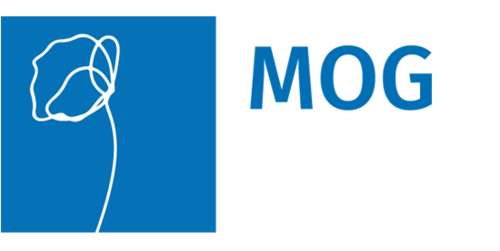Oral History Collections
The following is a selection of important websites or similar projects with digital testimonies in English:
a) Visual History Archive of the Shoah Foundation Institute for Visual History and Education at Freie Universität Berlin:
The Visual History Archive is an online-platform, that provides access to the interview collections of the "USC Shoah Foundation. The Institute for Visual History and Education." The collection of interviews with survivors and witnesses of the Holocaust was compiled between 1994 and 2000 and is the largest of its kind. It contains almost 52,000 interviews conducted in 56 countries and in 32 languages. Meanwhile the Visual History Archive expanded to include collections of interviews with survivors of other genocides.
Access to the archive at the Freie Universität Berlin
Freie Universität Berlin is providing access to the Visual History Archive of the "USC Shoah Foundation. The Institute for Visual History and Education" for research and teaching purposes. Also individuals or academic institutions, who are not members of Freie Universität Berlin have the possibility to access the largest oral-history-archive, as guests. Learn more about the research possibilities of the Archive and the activities of Freie Universität Berlin.
b) Archive „Forced Labor 1939-1945. Memory and History“, Center für Digitale Systeme (CeDiS), Freie Universität Berlin:
The collection contains 590 life story interviews with former prisoners of concentration camps, prisoners of war and 'civilian' forced laborers.The preparation of the collection began at Center für Digitale Systeme (CeDiS) at Freie Universität Berlin and the German Historical Museum at the end of 2007.
http://www.zwangsarbeit-archiv.de/index.html
c) Das Archiv “Refugee Voices” der Association of Jewish Refugees
Refugee Voices is a groundbreaking Holocaust testimony collection of 150 filmed interviews with Jewish survivors and refugees from Nazism who rebuilt their lives in Great Britain.
It was commissioned by the Association of Jewish Refugees (AJR), with Dr Anthony Grenville and Dr Bea Lewkowicz directing the project.
The collection consists of more than 450 hours of film and forms an invaluable resource for academics, researchers, educationalists and others with a professional interest in the field of refugee, migration and Holocaust studies. The collection has been designed precisely with the requirements of scholars and other professionals in mind.
All interviews have been fully transcribed and catalogued enabling a researcher to be able to see an interview and then to read a transcript of the words spoken in it, or vice versa. For ease of reference, both the films and the transcripts are time-coded, making it possible to locate specific passages with a minimum of effort.
Accompanying the collection is a comprehensive database, containing an index of the interviews and details of the interviewees and their life stories. The interviews have been catalogued with 44 separate categories including place of birth, parents' details, manner of emigration, prisons/camps and profession. This provides a wealth of information to researchers, who can easily locate information relevant to a multitude of specific areas of interest, such as Kindertransport, domestic servants and internment on the Isle of Man as well as interviewees from specific places such as Berlin and Vienna.
Each interview is accompanied by still shots of photos of family members and friends, places of importance for the interviewee and of other items or documents of special significance in the interviewee's life. These filmed photographs, artefacts, and documents provide a rich source of images for educational or documentary purposes.
In addition to exploring the contribution to Britain made by the refugees, the interviews cover the wide range of experiences of survivors including, amongst others, an interview with a survivor smuggled to safety from Denmark to Sweden, an interview with a woman who was 'exchanged' from Bergen Belsen to Switzerland and an interview with the last person alive today who was present at the signing of the Israeli Declaration of Independence. The archive also features interviews with survivors who have rarely spoken about their experiences.


